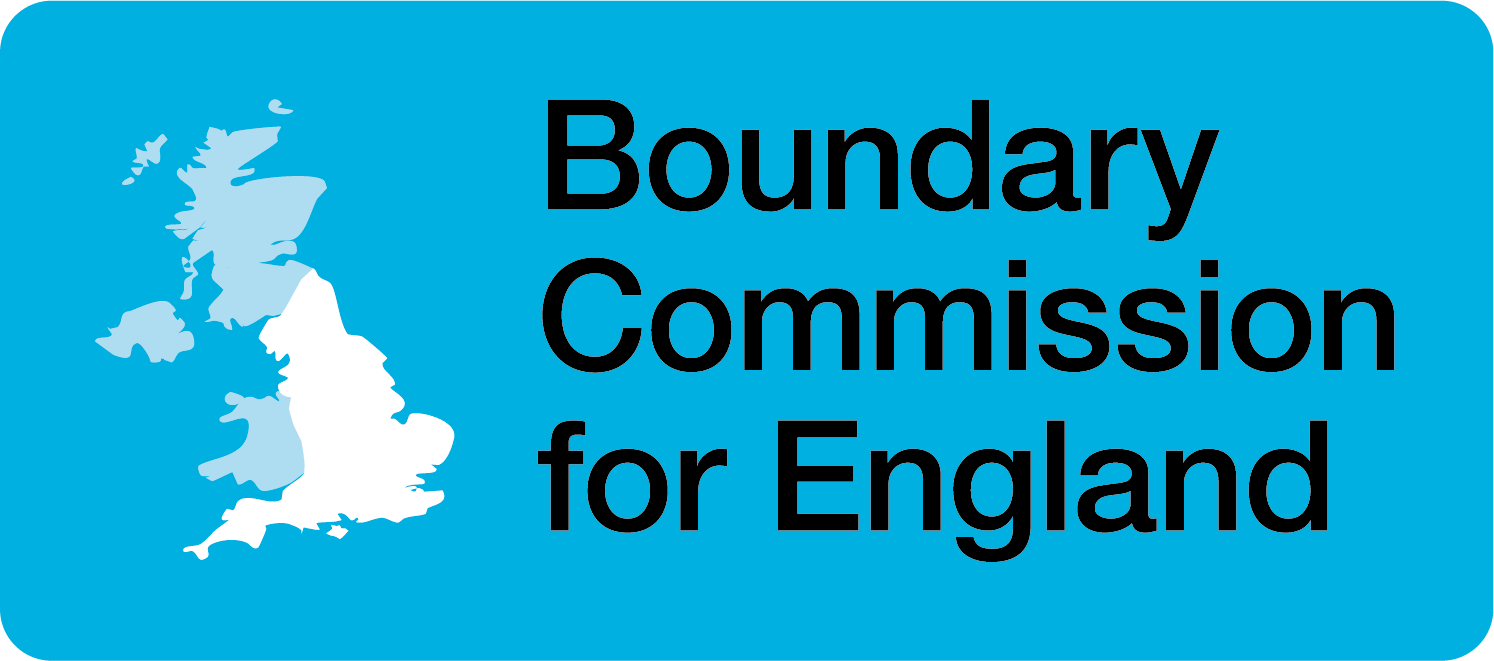Privacy notice for personal data received in consultation responses and visits to the online consultation portal
This notice sets out how the Boundary Commission for England (BCE) will use your personal data, and your rights.
YOUR DATA
The data we collect and the purpose of processing
The types of data we collect from your consultation response or visit to our consultation portal, and the purpose for our collection and processing of it are set out below:
| Type of data | Purpose for collection and processing |
| Name (submitted consultation responses) | To help us ensure each consultation response is from a unique individual |
| Physical address (submitted consultation responses) | To help us ensure each consultation response is from a unique individual. For responses submitted only in hard copy, we also need this to know where to send the confirmation of receipt of your response and its unique number. |
| Email address (only responses submitted by email or via our online portal) | We send an email to this address to confirm receipt of the consultation response and its unique number. |
| Cookies (visitors to our online portal only) | We use anonymised cookies in statistical analysis to help enhance and improve: a) the operation of the consultation portal; and b) the efficiency and effectiveness of our communications strategy to engage and inform the public in the consultation process. |
We have no reason to process, and will therefore seek to redact on receipt, any other personal data you voluntarily provide us with, e.g. your political views.
Legal basis of processing
The legal basis for processing your personal data is:
- It is necessary to comply with a legal obligation under the Parliamentary Constituencies Act 1986 placed on us as the data controller (to consult in carrying out a boundary review and publish responses); and
- It is necessary for the performance of a task carried out in the exercise of a function conferred on us by an enactment (our statutory duty to keep constituency boundaries under review, and to promote the consultation).
Recipients
In addition to the BCE itself, the following may hold personal data you submit as part of your consultation response or visit to our consultation portal:
- The Cabinet Office (joint data controllers with us), who provide and support our IT infrastructure and networks, together with their contracted providers of email, document storage and data hosting services;
- Informed Solutions (our data processor), as the contracted provider of BCE’s online consultation portal, including the database of all responses received, together with their sub-contracted providers of email, document storage and data hosting services;
- Aggregated cookie data will be shared with a web usage analytics service, and our contracted media buying agency.
Retention
Personal data from consultation responses and visits to our consultation portal will be kept for three months after the earlier of:
- the Order to make new constituencies following that review being passed (this would generally be expected to be about three years after the review formally commences); or
- the review is brought to an end by some other means.
The personal data we hold will be destroyed after this period.
YOUR RIGHTS
You have the right to request information about how your personal data are processed, and to request a copy of that personal data.
You have the right to request that any inaccuracies in your personal data are rectified without delay.
You have the right to request that any incomplete personal data are completed, including by means of a supplementary statement.
You have the right to request that your personal data are erased if there is no longer a justification for them to be processed.
You have the right in certain circumstances (for example, where accuracy is contested) to request that the processing of your personal data is restricted.
You have the right to object to the processing of your personal data where it is processed for direct marketing purposes.
You have the right to object to the processing of your personal data, unless we have a legal obligation to process it. Requests and objections should be sent to the relevant data controller, whose contact details are set out below.
You have the right to withdraw consent you have previously given (e.g. to inclusion of your name or address in your published consultation response) at any time.
INTERNATIONAL TRANSFERS
As your personal data is stored on our IT infrastructure, and shared with our joint data controller and data processor, both of which operate using cloud-based server hosting, it may be transferred and stored securely to servers outside the UK’s legal jurisdiction. Where that is the case, it will be subject to equivalent legal protection through the use of Model Contract Clauses.
DATA CONTROLLER AND DATA PROTECTION OFFICER
The BCE and the Cabinet Office are joint data controllers for your data by virtue of the BCE using Cabinet Office IT infrastructure.
The lead data controller for personal data collected as part of a consultation response or visit to our online consultation portal is: Boundary Commission for England, 2 Marsham Street, London, SW1P 4DF, or 0303 445 1102, or Information@boundarycommissionengland.gov.uk.
The contact information for the Data Protection Officer for both data controllers is: Stephen Jones, Data Protection Officer, Cabinet Office, 70 Whitehall, London, SW1A 2AS, or dataprivacy@cabinetoffice.gov.uk.
The Data Protection Officer provides independent advice and monitoring of the use of personal information by the data controllers.
COMPLAINTS
If you consider that your personal data has been misused or mishandled, you may make a complaint to the Information Commissioner, who is an independent regulator. The Information Commissioner can be contacted at: Information Commissioner’s Office, Wycliffe House, Water Lane, Wilmslow, Cheshire, SK9 5AF, or 0303 123 1113, or casework@ico.org.uk. Any complaint to the Information Commissioner is without prejudice to your right to seek redress through the courts
This page reformats automatically when printed. Print this section
